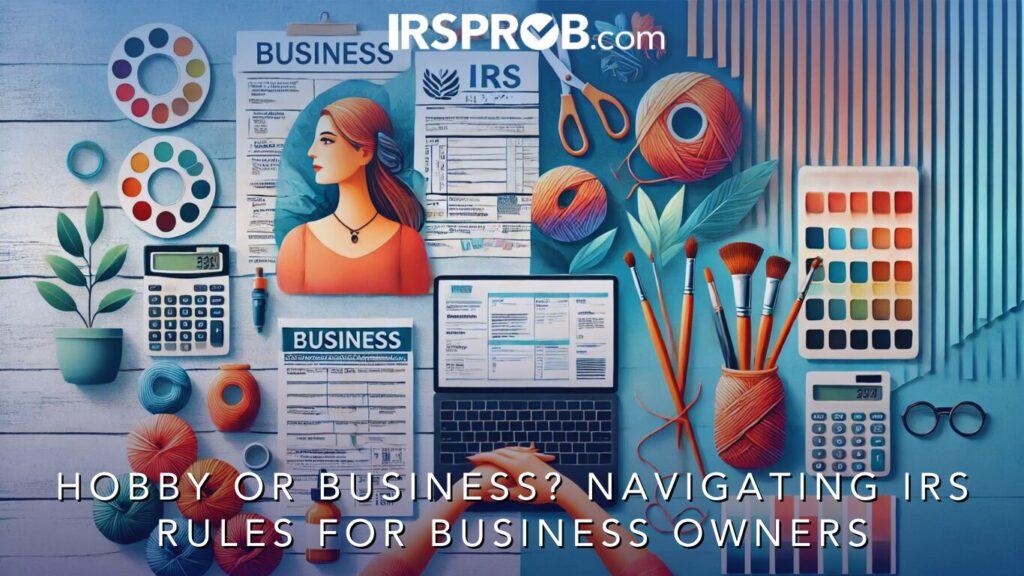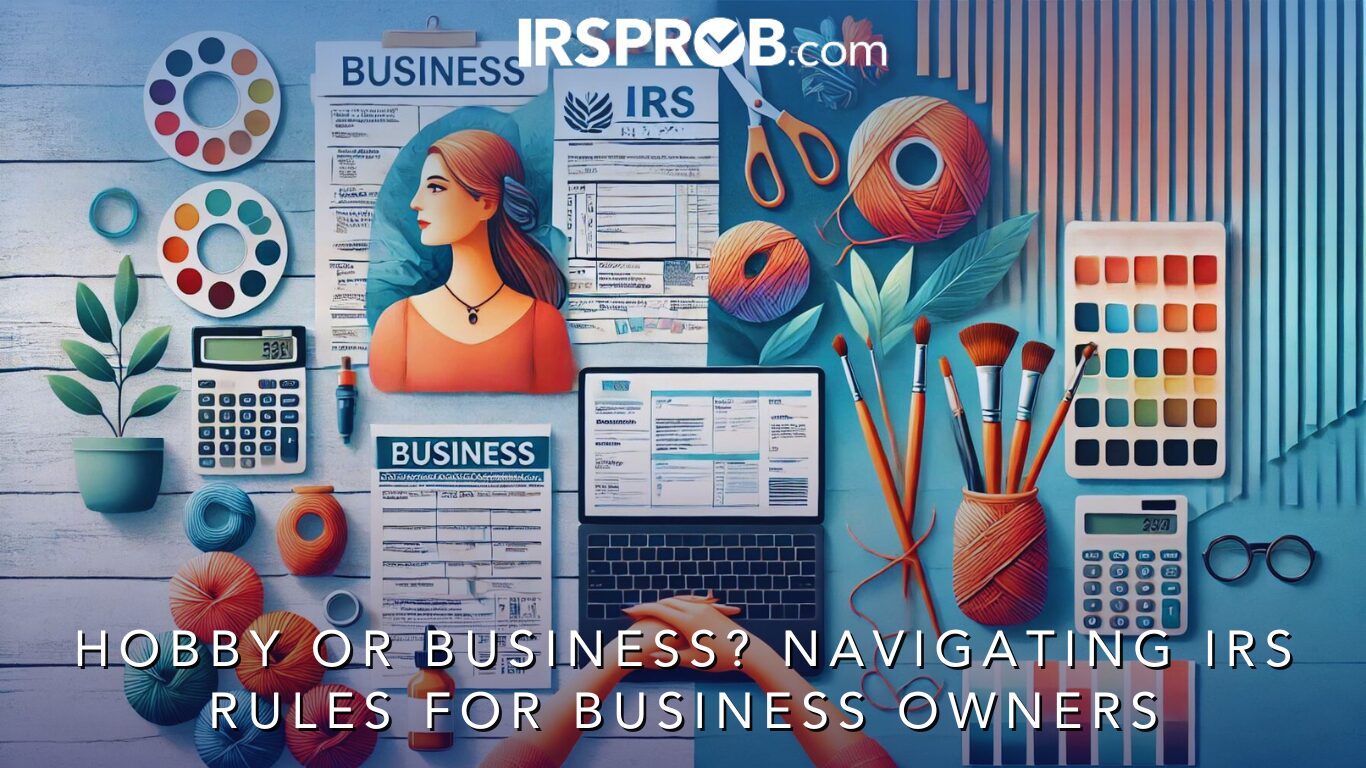
One of the biggest tax-related questions for business owners is whether the IRS will classify an activity as a business or a hobby. The answer has major tax implications: If your venture is deemed a hobby, the tax deductions you can claim are significantly limited. Understanding the IRS’s criteria for distinguishing between a business and a hobby can help business owners avoid potential pitfalls and maximize their tax benefits.
Why It Matters
The IRS allows businesses to deduct expenses that exceed income, which can be a valuable strategy to reduce your overall tax burden. On the other hand, if your activity is classified as a hobby, these deductions are largely restricted, with operating expenses for hobby activities not deductible for tax years 2018 through 2025.
Key Factors the IRS Considers
The IRS looks at several factors to determine whether an activity is conducted for profit, and thus a business. No single factor is determinative, and the IRS evaluates the totality of the circumstances. Here are some key criteria:
- Manner of Operation: The IRS will consider if the activity is conducted in a businesslike manner. This includes maintaining accurate records and adapting methods to improve profitability, just like similar successful businesses.
- Expertise: Business owners who either have expertise in their field or consult knowledgeable advisors have a stronger case for claiming their activity as a business.
- Time and Effort: Substantial time and effort spent on the activity suggest a profit motive, especially if it is not merely recreational. Hiring qualified staff to manage the activity also supports a business classification.
- Expectation of Asset Appreciation: Even if day-to-day operations aren’t profitable, if you expect your assets (such as property) to appreciate over time, this can indicate a profit-driven business.
- History of Success: A track record of turning similar activities from unprofitable to profitable, or even success in unrelated ventures, works in your favor.
- Income or Loss History: The IRS looks at whether your activity consistently loses money or if you experience occasional profits. While losses during the start-up phase are common, prolonged losses without clear reasons may indicate a hobby.
- Financial Status: If you have significant other income and generate large tax benefits from the activity’s losses, the IRS may be skeptical of your profit motive.
- Personal Pleasure: If the activity is highly recreational or provides significant personal enjoyment, this could signal a hobby. However, personal enjoyment doesn’t automatically disqualify an activity as a business if other factors indicate a profit motive.
Presumption of Profit
One safe harbor rule can help you avoid hobby classification: If your activity shows a profit in three out of five consecutive years, it’s generally presumed to be a business. For horse-related activities, this window extends to two out of seven years.
Reporting Hobby Income and Expenses
If your activity is classified as a hobby, it’s important to know how to report it properly. Hobby income, less any cost of goods sold, is reported as “Other Income” on Schedule 1 of your Form 1040. Remember, for hobby activities, the IRS does not allow deductions for operating expenses.
Common Hobby Activities
Some common activities the IRS may scrutinize for potential hobby classification include:
- Craft sales (e.g., knitting, woodworking, jewelry making)
- Artists and entertainers
- Airplane or yacht charters
- Bed and breakfasts
- Horse breeding or racing
- Direct sales or gardening
Steps Business Owners Can Take to Strengthen Their Case
To avoid having your business classified as a hobby, there are proactive steps you can take:
- Keep detailed records: Maintain books and records that show you are actively managing the business with a profit motive.
- Develop a business plan: A written plan demonstrating how you intend to make your venture profitable can serve as evidence of your intent.
- Adapt and pivot: Be prepared to change strategies if your business isn’t profitable. This shows you’re serious about making it work.
- Seek professional advice: Consulting with industry experts and tax professionals demonstrates a commitment to running your activity like a business.
Conclusion
For business owners, it’s crucial to understand how the IRS distinguishes between hobbies and businesses. Being aware of the key factors the IRS examines and taking proactive steps to demonstrate your profit motive can help you avoid costly surprises come tax time. If you’re unsure whether your activity qualifies as a business or a hobby, consult with a tax professional to ensure you’re taking advantage of all allowable deductions and maintaining compliance with IRS regulations.








